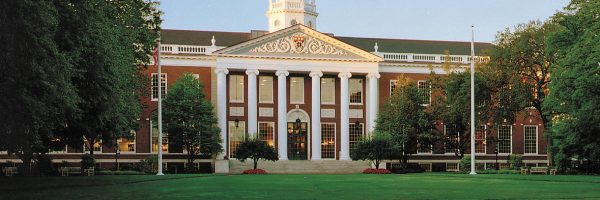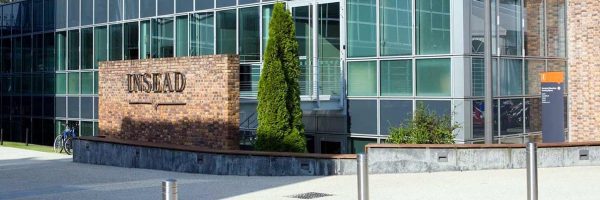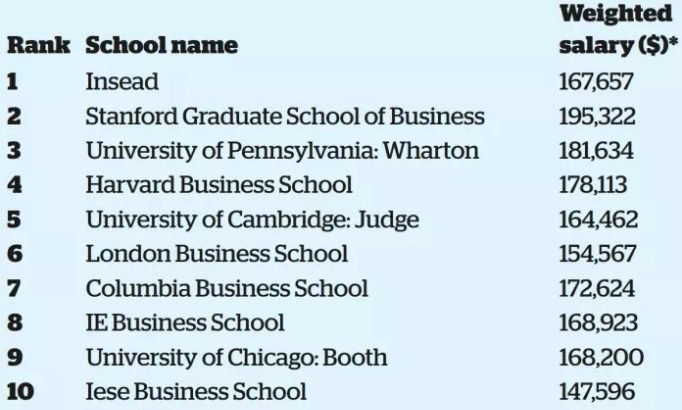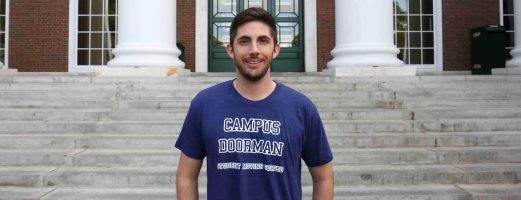After Extensive Search, Stanford GSB Names New Assistant Dean of Admissions

The void created last August when long-time Stanford Graduate School of Business (GSB) MBA admissions czar Derrick Bolton left has been filled. The school announced today that Kirsten Moss has been named the new assistant dean and director of MBA admissions and financial aid.
Moss is no stranger to Stanford’s admissions office, having served as part of the team from 2004 to 2010, first as a consultant, then as associate director of evaluation and finally as director of MBA admissions. During her time with the Palo Alto school, she managed the evaluation, marketing and operations teams while also developing a new approach to assessing leadership capability. Prior to joining Stanford, she led admissions and financial aid at her alma mater, Harvard Business School (HBS), from 1995 to 2001. She immediately preceded Deirdre Leopold, who would go on to hold HBS’s key admissions director role for the next decade and a half.
Moss left Stanford in 2010 to work as a consultant for global executive search firm Egon Zehnder before launching her own consulting firm in 2012, which she has run for the past five years. Over the same span of time she also obtained her doctorate in psychology—with a focus in organizational behavior—from William James College, which boasts the largest graduate psychology program in New England.
“Kirsten has a strong understanding of our school’s vision and immediately impressed us with her ideas for connecting with the next generation of students making a positive, measurable difference in the world,” Stanford GSB Dean Jonathan Levin said in a statement announcing her appointment. “Kirsten brings a wealth of knowledge and experience—from top-tier MBA admissions programs to business consulting—and will provide fresh insight as we achieve new levels of excellence.”
Moss’s appointment concludes an extensive search chaired by Stanford Senior Academic Dean Yossi Feinberg that included interviews with faculty, staff, students and alumni. She will assume the new role on June 1 and will report to Feinberg. “Kirsten has deep experience in admissions and leadership talent evaluation both inside and outside Stanford GSB,” Feinberg said in a statement.
Moss, who holds both MBA and bachelor’s degrees from Harvard, is excited to return to Stanford, where she will manage the admissions and financial team and have responsibility for shaping the school’s vision for how to continue to reach and recruit the world’s most highly qualified MBA candidates. Stanford has long held the claim as the most selective business school in the world. Last year, it admitted just 6.1 percent of the more than 8,000 hopefuls who applied.
“Stanford GSB has a rich legacy of equipping students with the tools necessary to create change—individually, within organizations and throughout the world,” Moss said in a statement. “I’m thrilled to join the team in this new capacity as we work together to cultivate the next generation of leaders poised to make an impact.”
Learn more about Stanford GSB’s new assistant dean and director of MBA admissions here.
This article has been edited and republished with permissions from Clear Admit.
What Women Want in an MBA: Financial Aid and Flexibility

In honor of last Wednesday’s International Women’s Day, the Graduate Management Admission Council (GMAC) today released a new report entitled “What Women Want: A Blueprint for Change in Business Education.” For readers who may be too young to remember the 2000 romantic comedy also called “What Women Want,” it starred Mel Gibson as a chauvinistic advertising executive who suffers a blow to the head that renders him suddenly able to hear everything women around him are thinking. Though first instinct would be to assume that the two—Gibson’s rom-com and GMAC’s research—have nothing at all to do with one another, that’s not entirely true.
Continue reading…
Which Business Schools Produce The Most Unicorn Founders?

Billion-dollar startups, more affectionately and repeatedly crowned as Unicorns, have become a benchmark that business schools around the world use to boast overall success. But which business schools actually produce the most successful startup founders?
INSEAD, Stanford Top Financial Times World MBA ‘17 Ranking

For the second year in a row, France and Singapore business school INSEAD topped the annual Financial Times‘ list of the world’s best full-time MBA programs. INSEAD was followed by the Stanford Graduate School of Business and The Wharton School at the University of Pennsylvania.
The methodology behind the construction of the Financial Times world full-time MBA list is simple:
The ranking is based on surveys of the business schools and their graduates of 2013. MBAs are assessed according to the career progression of alumni, the school’s idea generation and the diversity of students and faculty.
Meaning, that the list isn’t simply ordered by the annual average salary of those graduates surveyed, nor just isolating their individual approval of their time with the schools. For instance, despite being second on the list overall, Stanford GSB grads earned the highest average annual salary ($195,000). The reason INSEAD came ahead, despite a near $30,000 annual difference, was much higher rankings in the categories of value (11th overall) and international mobility.

For the first time in nine years Harvard Business School fell out of the top three while the London Business School fell to sixth, its lowest spot in 14 years. This also marks for the first time in the history of the ranking that LBS was not the first UK school on the list, supplanted by the University of Cambridge: Judge. As well, not listed in the top ten for the first time in 10 years—perhaps surprisingly—is the MIT Sloan School of Management.
Judge in particular may be the most outstanding winner of the ranking keeping in mind that just five years ago the school ranked 26th overall. Judge’s accolades stem from the tremendous value (1st overall). Tuition at the school is the cheapest among all selected in the top 15 and the opportunity cost was considered the 2nd best in the world.
Fifty-one U.S. schools managed a spot on the ranking (up from 47 in ‘16), including the Rutgers Business School, which was the highest new entrant at 70. The Mendoza College of Business at the University of Notre Dame saw the biggest increase from the previous year, moving up 16 spots to 60th overall (the school jumped 13 spots the previous year as well).
However, Canadian schools fell back slightly with only three making the top 100. The Rotman School of Management at the University of Toronto was the highest-ranking of the three at 65th.
Read the entire list and analysis here.
HBS Asks How Fast We Can Transition To Renewable Energy?

By 2050, a handful of countries have admirably promised something that seems like a far-off pipe-dream—running solely on renewable energy.
Startup Lessons: Campus Doorman

The path for startups can be treacherous. In the series “Startup Lessons,” we examine new MBA startups at the ground level to understand how they succeed.
